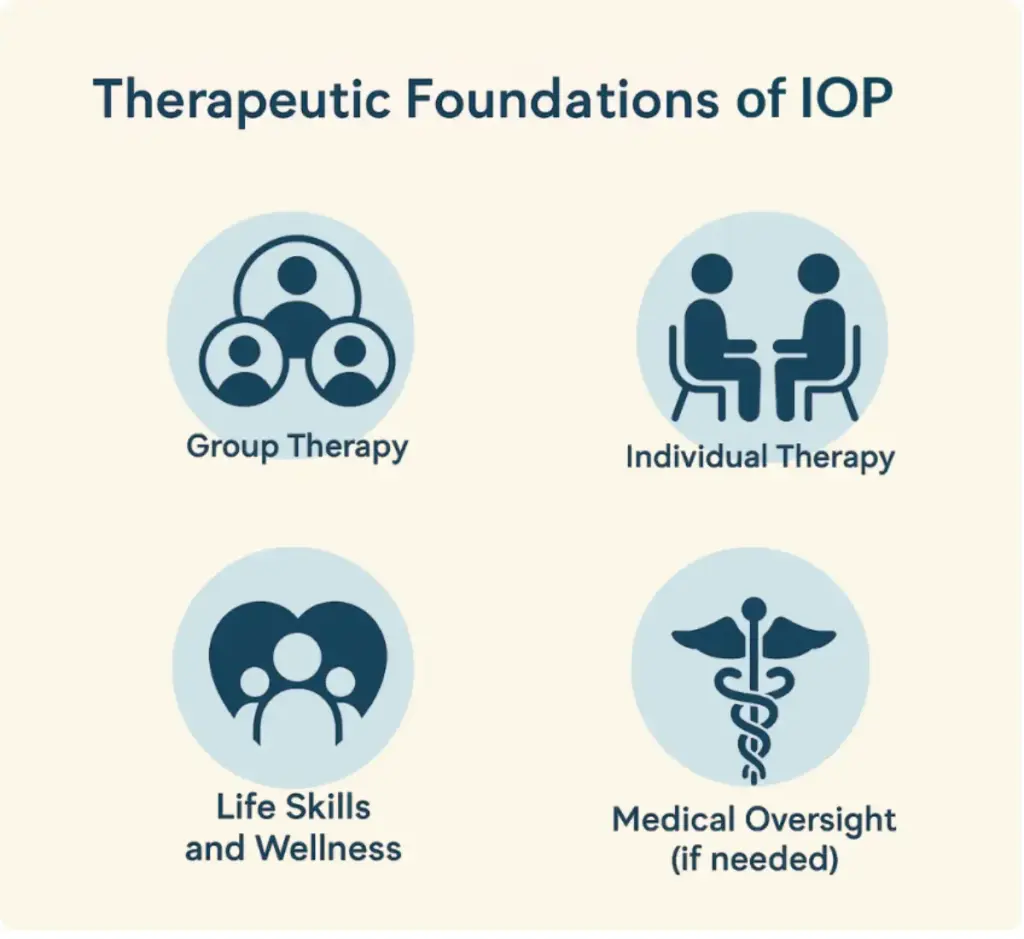
Structure and Support for Life in Recovery
Recovery is deeply personal, but it should also be logistically feasible. For those juggling responsibilities such as work and family, finding a treatment approach that offers effective care while accommodating these priorities is crucial. Intensive outpatient programs (IOPs) offer a blend of flexibility and structure that allows you to live at home while receiving proven therapeutic support for substance use and mental health conditions, supporting the healing process without pulling you away from the rhythm of your daily life.
IOPs provide the same high-quality therapies found in more intensive settings but without the need for overnight stays. As a trusted addiction treatment provider, Legacy Healing Center helps you determine whether IOP is the right fit and guides you toward a path of renewal grounded in clinical excellence and genuine compassion.
What to Expect From Legacy Healing Center’s IOP
Legacy’s intensive outpatient program offers a thoughtfully balanced level of care for those continuing their recovery or beginning it in a more flexible setting. Whether you’re stepping down from partial hospitalization or entering treatment for the first time, IOP provides steady, personalized support to help you regain stability and move forward with confidence.
Who Benefits from IOP?
- Individuals who’ve completed PHP or residential treatment
- People in stable living environments seeking continued therapeutic structure
- Working professionals or students who require flexible scheduling
- Those managing co-occurring mental health and substance use challenges
- Clients experiencing relapse and seeking re-engagement in structured care
This level of care is particularly effective for clients who are motivated to recover but require ongoing clinical guidance as they encounter real-world triggers and stressors.
Recent research confirms this effectiveness—participants in an integrated intensive outpatient program experienced significant and lasting reductions in both PTSD symptoms and substance use, even at three-month follow-up (Norman et al., 2022).
A Flexible Framework for Daily Recovery
Intensive outpatient care allows clients to engage in treatment 3–5 days a week while living at home or in a sober living environment. Sessions typically range from 9 to 15 hours per week, depending on clinical needs, and include both group and individual therapies.
Treatment plans are developed by our multidisciplinary team and regularly adjusted to reflect progress, goals, and emerging challenges. This dynamic approach ensures that care evolves alongside the individual.
Therapeutic Foundations of the Program:
- Group Therapy: Engaging group sessions help build meaningful connections and offer guidance through shared learning and personal discovery.
- Individual Therapy: One-on-one sessions with licensed clinicians explore trauma, patterns, and goals.
- Family Involvement: Family therapy and support groups help repair relationships and reinforce recovery at home.
- Life Skills and Wellness: Clients participate in mindfulness practices, nutrition education, relapse prevention planning, and vocational development.
- Medical Oversight (if needed): Continued psychiatric support and medication management for those with co-occurring conditions.
The Legacy Approach: What Sets Our IOP Apart
Our intensive outpatient program offers a uniquely balanced experience, delivering meaningful clinical engagement without disrupting the rhythm of everyday life.
Key benefits include:
Advantage | What It Offers |
Seamless Reintegration | Apply therapeutic insights in real time, building confidence and emotional strength. |
Ongoing Support | Maintain continuity of care during the sensitive transition from residential treatment. |
Community Connection | Build meaningful relationships with peers, fostering shared motivation and accountability. |
Flexibility & Customization | Progress at a pace tailored to individual needs, goals, and recovery milestones. |
At Legacy Healing Center, every client receives personalized attention within an environment that respects their journey and elevates their experience.
Where IOP Fits in the Recovery Journey
IOP is an essential part of the full continuum of care. Clients often enter this level of care after completing medical detox, residential treatment, or a partial hospitalization program (PHP). It serves as a vital step down that sustains progress and prevents relapse.
For some, IOP is a first entry point, especially for those with mild to moderate substance use issues or stable living environments. When appropriate, clients may transition into standard outpatient care or alumni support programs later.
Our clinical team collaborates with each client to ensure appropriate placement, continuity, and long-term recovery planning.
Expert Care Grounded in Evidence and Empathy
Legacy Healing Center’s IOP is grounded in the highest standards of clinical excellence and compassion. We adhere to national benchmarks such as those outlined by the American Society of Addiction Medicine (ASAM) and incorporate diverse, evidence-based modalities.
- Therapeutic approaches include cognitive-behavioral therapy (CBT), dialectical behavior therapy (DBT), motivational interviewing (MI), and trauma-informed care
- 12-Step facilitation and mindfulness-based therapies offer additional frameworks for long-term recovery
- Ongoing care plan reviews ensure treatment stays aligned with each client’s goals and evolving needs
- Dual diagnosis services address co-occurring mental health and substance use challenges
- Emphasis on internal motivation, emotional regulation, and building skills for sustainable change
We believe recovery is most effective when clinical structure is paired with human connection. At Legacy, our IOP is designed to meet you where you are with respect, adaptability, and the resources to help you thrive.
Your Next Chapter Begins Here
You don’t have to choose between healing and living your life. Our intensive outpatient program empowers you to pursue both at your own pace, with the support of expert clinicians and a compassionate community.
If you or someone you love is ready to explore IOP or needs help determining the right level of care, contact us today. Let us help you find clarity, direction, and hope.
Not sure where to begin? You can quickly and confidentially verify your insurance online or contact our addiction specialists by phone at (888) 534-2295.
Immediate Help and Support
Whether you’re ready to start now or simply exploring your options, these trusted resources are here for you:
- Legacy Healing Center: Call (888) 534-2295 to speak confidentially with an addiction specialist.
- SAMHSA National Helpline: 1-800-662-HELP (4357) – Free, confidential support available 24/7 for individuals and families facing substance use disorders.
- 988 Suicide & Crisis Lifeline: Dial 988 from any phone for immediate assistance in a mental health or substance-related crisis.
You’re not alone—support is just one step away.
Table of Contents
Check Your Coverage Now
Select your insurance below and we willl reach out to you with qualifying information.
"*" indicates required fields
Ready to Get Help?
Give us a call or fill out a contact form and we’ll reach out to you.



 Written By:
Written By:
 Edited By:
Edited By:
 Clinically Reviewed By:
Clinically Reviewed By:




 Verify Insurance
Verify Insurance 